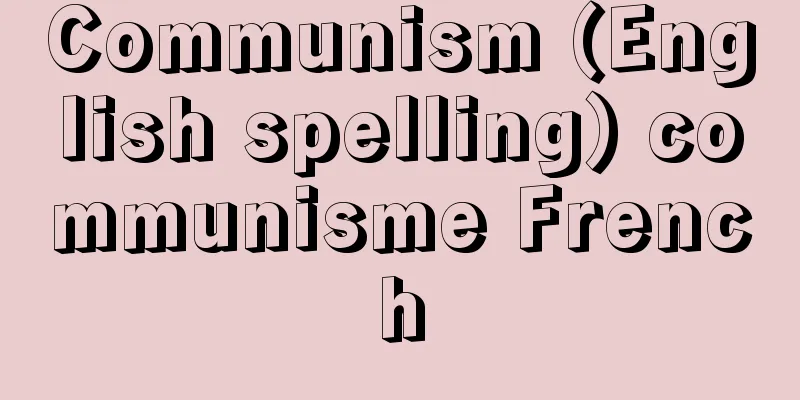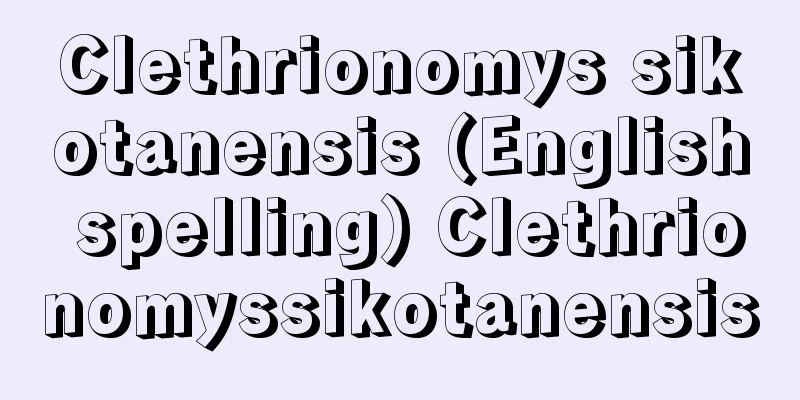mimos

|
...The later classification of comedy of character and comedy of situation is also based on the weight of these two elements. In Rome, mimos plays, which mainly consist of mimicry, are included, but these can be said to be the prototypes of genres such as farce (farce), stoicism (stoicism), farce, clown play, and burlesque, which are less literary than so-called "comedy." In the Roman era, theater declined due to spectacles, and mimicry was suppressed with the spread of Christianity, so in the Middle Ages, only a few comedic forms remained in the form of street performances. From Greek Literature…Here we can clearly see the precursors of Hellenistic literature. In addition, at the courts of Alexander and the nobles, skits depicting the state of affairs of the world, called mimos, were frequently performed. The surviving mimos by Herondas (also called mimiambis) mimic the customs of men and women, reminiscences, love stories, etc. in a rather vulgar way. … From [Pantomime] ...It is also simply called "mime", and translations and terms such as "silent drama" and "silent drama" are also used. *Some of the terminology explanations that mention "mimos" are listed below. Source | Heibonsha World Encyclopedia 2nd Edition | Information |
|
…のちの性格喜劇comedy of characterと状況喜劇comedy of situationという分類法も,この二つの要素の比重によるのである。ローマには,身ぶり物まねを主体にするミモスmimos劇も入っているが,これはいわゆる〈喜劇〉より文学性の薄い笑劇(ファルス),痴呆劇(ソティ),茶番劇,道化劇,バーレスクなどのジャンルの原型といえよう。ローマ時代に見世物によって演劇が衰退し,キリスト教化によって身ぶり狂言も弾圧されると,中世にはわずかに大道芸のような形で喜劇的なものが残された。… 【ギリシア文学】より…ここには明らかにヘレニズム文学の先触れが認められる。また,アレクサンドロスや諸侯の宮廷では,〈擬曲(ミモスmimos)〉と呼ばれる世情描写の寸劇が盛んに演じられた。現存するヘロンダスの《擬曲》(《ミミアンビ》とも呼ばれる)は,男女風俗,追想,恋物語などをかなり卑俗な形で模している。… 【パントマイム】より…単に〈マイムmime〉ともいい,〈黙劇〉〈無言劇〉などの訳語・用語も用いられる。 ※「mimos」について言及している用語解説の一部を掲載しています。 出典|株式会社平凡社世界大百科事典 第2版について | 情報 |
Recommend
Oleo oil - Ore-oyu
…Tallow has a melting point of 40-46°C, and its f...
Kitadaito Island
Located 360 km east of Okinawa Island, Okinawa Pr...
Akechi Mitsuhide
A military commander in the Azuchi-Momoyama perio...
Potentilla chinensis (English spelling) Potentilla chinensis
…[Naruhashi Naohiro]. . … *Some of the terminolog...
Vesakha Festival - Vesakha Festival
In southern Buddhism, this festival is held to cel...
chamotte brick
...High silica bricks are made from waxstone with...
Carolingian minuscule (English spelling)
...In southern Italy, the dynamic and uniquely rh...
Spilogale putorius (English name) Spilogaleputorius
...Distributed from the southern United States to...
Goshuui Ojoden - Goshuui Ojoden
Compiled by Miyoshi Tameyasu. After the completion...
NCC - National Christian Council of Japan
The National Council of Christians in Japan. A lia...
Shimazu-so
It originated from Shimazu-in in Morokata County,...
Mitsubishi Electric Corp. - Mitsubishi Electric
A major general electric manufacturer of the Mitsu...
《Esther》
…However, during this period, Handel established ...
Diazo type
This is a photographic method that utilizes the f...
Korogisu - Korogisu
An insect of the family Colocynidae in the order ...









